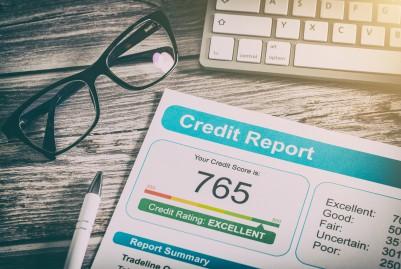1. Get A Credit Card
Getting a credit card is a great way to raise your credit score, if you use it regularly and make the payments on time. You can always use it for something you know will happen every month, like your water bill, and then pay off the balance just to get those good reports on your credit. If you’re starting to build credit from scratch, or have poor credit, consider a secured credit card. This is a card you put down a deposit on, and the company uses that deposit as collateral. You use the card to make purchases and then make payments every month like a standard credit card. If you immediately pay off the balance after making the purchase, you can reap the benefit of building credit without the disadvantage of paying high interest on it. Many times, these secured cards will refund your deposit and offer you another line of credit over time. The Discover IT secured card works with a $200 deposit. Mastercard and Capital One offer this card and the deposits start at $49.
2. Pay Off Old Debt
Maybe you went to the hospital two years ago and forgot to pay the bill? Another way to improve your credit score is to comb through your credit report and pay off the things that may be negatively impacting it. The Federal Trade Commission recommends going here or calling 1-877-322-8228 to obtain a free copy of your report. You’ll have to verify your identity by answering some questions before you can get a copy. This is a great reminder for bills that may have gotten lost in the mail. You can also make sure no mistakes have been made that are adversely impacting your score. The people who report to these agencies are only human, and sometimes errors happen. This way, if your bank incorrectly reported a late payment on your loan, you can call and dispute it.
3. Get A Cosigner
Lastly, if you have a low credit score, consider getting a cosigner for your rent or loan. As long as you pay on time, this will help the lender feel more confident about you while you build good credit. Your potential cosigner needs to be someone with a near excellent credit score and have enough income to cover the payment should you default. It needs to be someone who doesn’t mind filling out paperwork with personal financial information.
A credit score is a snapshot of your likeliness to honor loan agreements and payment arrangements. Whether you’re trying to improve your score, or build on it from scratch, there are ways to change the numbers in your favor.

